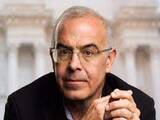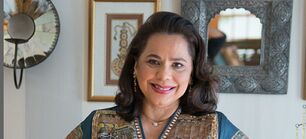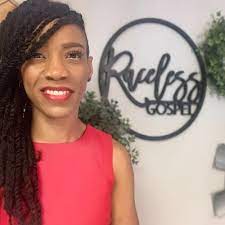weekly column
|
Each week, find a commentary on something connected to verses of Torah or another source of wisdom
|
|
Each week, find a commentary on something connected to verses of Torah or another source of wisdom
|
 Wisdom Wherever You Find It No one says goodbye anymore like we used to. The only real goodbye is at death. Time and distance have different destinations. In many ways, they do not exist. Robert Barr Of the many changes that have swept through the human family, I imagine the one that has had the most profound impact has been the redefinition of what it means to say “goodbye.” While it is true that many languages use an aspirational greeting for departure (the French say au revoir, “until we see again”, Hebrew’s l’hitra’ot means “to see each other again”), the fact is that for most of human history, saying a true goodbye was likely a final separation. I don’t mean the kind of goodbye you say when leaving a dinner party or going home from a day’s work. I mean I’m-moving-to-another-city goodbye, or I’m-off-to-college goodbye, or I’m-going-to-explore-a-route-to-India goodbye. When people took leave of loved ones and familiar faces, it was more often than not the last time they would see each other. I learned this truth from Bob Barr (NOT the Member of Congress – though he tried!), who has thought a lot about the subject. He is a humanistic rabbi whose congregation was based in the internet long before the pandemic made that a usual thing. In today’s world, no goodbye is permanent except for death. My nephew moved from Chicago to Jerusalem and, but for covid restrictions, spends time with his parents every few months. He sees them every few days on his mobile phone. His kids bake with my sister-in-law on tablets in each of their kitchens. That level of contact was prohibitively expensive in my lifetime and next to impossible a century ago. And while Facetime is not a hug, the loss and longing would have been a fact of everyday life before that. What does it mean to lose the meaning of goodbye? First of all, it makes us noncomprehending of the meaning of the word. I don’t mean its origins; I mean its permanence. When we say goodbye today, we put no more stock in it than in seeing Wile E. Coyote flattened by an Acme anvil. That’s not say we do not feel sad when we are separated, but we reassure ourselves and each other of the temporary nature of “goodbye.” I also think it changes our understanding of death. We have no practice in loss. Its arrival comes as much more of a shock to the system than we understand. I don’t think people in earlier times were any less sad when a death occurred. Perhaps they were a little more philosophical about it. But they had practice with its permanence and responded to its familiarity. Today we rush from death, almost with alacrity. I am, of course, most familiar with Jewish tradition, which has a lengthy and elaborate set of rituals to ease people into and out of consuming grief. The length of ritualized mourning – seven days of separation from everyday life, a full month (for a parent, a full year) of thrice-daily prayers of remembrance and affirmation, refraining from social pleasures, and marking annual remembrances – is viewed as a burden rather than a process of honoring the dead and healing the survivor. Death is being denied, not as a fact, but as a force. The genuine blessings of global and instantaneous communications and rapid travel in affordable conveyances have enabled so much that is good and desirable in our world. In many ways, the technology of connection has preserved our lives during the restrictions of a viral virus. Our celebration of and dependence on transport has never been more apparent than in its slowdown. I would never advocate for turning back the clock, digital or analog, on these advancements. Rather, I hope we can find a way to learn with intention what our not-so-distant ancestors learned by increment: the loss of people near and dear to us is inevitable. The ability to say goodbye and adjust to a minute hope of reunion is practice for the ultimate leave-taking. Some people hope to reconnect in a realm beyond the physical, but even the deepest believer in the afterlife knows that there is a qualitative difference between this world and any world-to-come. Barr correctly observes that time and distance almost no longer exist for the human family. That means they are no longer the proving grounds for separation, and we are unprepared -- not intellectually, but viscerally – to let go. Until there is no choice in the matter, we never can say goodbye.
1 Comment
 Wisdom Wherever You Find It The awareness of sin is the essence of humility. David Brooks Sooner or later, David Brooks had to turn up in this rotation of wisdom. Perhaps it is surprising that I, a rabbi, would find a representative quotation from a Jew that sounds so Christian. Brooks has been often honest, sometimes coy about his personal religious identity, but his integrity continues to lead him to consider insight wherever he finds it. We live in a culture of self-affirmation. My impression, after forty years of exploring spiritual concerns with people, is that most of us, myself included, talk the talk, but are still pretty insecure about our sense of personal worth. We substitute bravado for true certainty and spend time in the shower or under the covers being reluctantly honest with ourselves. In fact, I once asked a psychiatrist what he had gleaned from his years of treating patients. He said he had been therapist to janitors, doctors, teachers, businesspeople, and those in every imaginable walk of life, and they all expressed one thing in common in the safety and privacy of his office. They all believed themselves to be frauds, and it was only a matter of time until they were found out. That very human sentiment is, I believe, very much at the root of religion. And I will offer a very broad understanding of religion as any set of values that posits a code of behavior (and even belief) that is more than the immediate interests of the believer. You needn’t posit a deity or an external moral code to believe in altruism. But once you posit that we each have more responsibility in this world than to serve ourselves – and anyone who isn’t a sociopath believes that – you believe in sin by any other name. Sin is what separates us from the ideal. I am not embarrassed to name my ideal – God – but I can forego the label in pursuit of my point. When we are less than our authentic and whole selves, we sin. And because we are aware of it, whether purposefully and consciously or by our innate and private sense of being a fraud, we are humbled. Humility is an acceptance that we have fallen short of the ideal. The season during which I am writing these words is sacred to Christians because it leads to the very initiation of their faith. Christmas is celebrated as the birthday of Jesus who, as Christianity claims, came into this world as a gift from the ideal (God) to take away our shortcomings (sin). It is a powerful message, and it is therefore no wonder that this religion has gained so many adherents. A true Christian, I am told (by true Christians, of course) is humble constantly because of their awareness of the constant presence of sin as part of their nature. (I am also told that anyone not possessed of a humble nature is not really a true Christian, but I will leave that to believers to debate.) But Brooks’s wisdom, whether it emerges from insight or faith, applies to those of us, including me, who find its truth to be independent of the message of any faith or philosophy. The arrogant person, the one who proclaims, “I’m kind of a big deal,” is publicly unaware of falling short of their ideal because of their unawareness of sin. Privately, on the other hand, no person who pretends to goodness can be arrogant. I probably used to believe you had to be a person of faith to be a good person. I might even plead guilty to once believing you had to be Jewish to be a good person. Evidence to the contrary is too strong for me to lay claim to either position any more. All I know with any degree of confidence is myself. I shudder to think what kind of person I might be without my religion to hold before me a path to the ideal. I am no longer discouraged to admit that at best I can hope to stand occasionally in the wake of the ideal. I fall short, that is, I sin. It keeps me humble to remember it, even in those moments in the wake. Our culture of self-affirmation has rejected the dour image of humanity promoted by the formal sin-and-redemption stance of established religions. Mostly, that’s a good thing. We may not be perfect, but mostly we are not all that bad. But by discarding the notion of sin – of falling short of the ideal – we run the risk of closing the door to embracing the potential of being better than we are. All that humility really means is that I can do better, and the awareness of my need to do better is the essence of humility, and the roadmap that leads away from believing I am a fraud.  Wisdom Wherever You Find It It is our ordinariness that connects us. Salma Hasan Ali Some might deny it, but every religion in the world starts from the presumption that it is the best. Otherwise, why believe? It is true of religions in the classical sense – those with divinely revealed scriptures or cosmically imparted values – and it is true of religions that claim not really to be religions – secular philosophies, pagan communities, even the Pastafarians (look it up). The old joke about two litigants who make their case to a rabbi applies here. He listens privately to the first one and says, “You’re right.” The second one takes a turn and the rabbi says, “You’re right.” His wife, listening to the proceedings, admonishes her husband that they can’t both be right. The rabbi responds, “You’re also right.” These deeply held convictions are usually kept at bay in polite company. They are also concealed with a veneer of collaboration in interfaith councils that seek the widest possible membership. In the end, no matter how compelling the argument, Christians won’t give up Jesus, Muslims won’t accept a different Prophet, Buddhists won’t affirm a deity, atheists won’t accept an external source of morality, and Jews won’t stop insisting that we are a people, not only a religion. We all may affirm the meaning of your belief system as profoundly meaningful to you, but still at least one tick short of what we ourselves believe. No answer is universal. But Ali is correct when she insists that it is our ordinariness that connects us. The elaborate and powerful teachings that make up our belief systems may keep us apart. But we make a mistake to focus on them when we are looking for connections. The questions are what bind us together. Maybe it is a mistake to try to list some of them here because I will inevitably leave out the one most important to you and maybe everyone else who isn’t me. But if you think about the matters that trouble your heart – not in a debilitating way, but as a matter of existential curiosity – my guess is that the challenges we face every day in the midst of our ordinariness give us far more in common than the answers we pursue individually and collectively with such ferocity. Mostly they are questions of meaning. Why am I alive? Do I have a purpose? Am I loved? Can I love? What is truly important? Are we alone? What should I fear? The combination of collective wisdom, predisposition, and cultural immersion leads us to responses that divide us into groups that provide us with rituals and symbols designed to make us tentatively satisfied with responses. For a time, shorter or longer, we are satisfied. But that satisfaction is what so often leaves us suspicious of others who have reached different conclusions. They are probably wrong. But what if they are not? At the core of our humanity are the common concerns that lead us to seek the answers. The questions are ordinary, and they rest on the heart of young and old, spiritual and secular, familiar and exotic, local and distant. Our everyday worries and our ultimate ones are a far greater indication of what we share with others than the answers we choose that deceive us into believing one size fits all. Don’t be insulted by being ordinary in your concerns. As Salma Hasan Ali suggests, it is what connects us to each other. There is plenty of room to be extraordinary – even unique – in the ways you find to address your questions. But I hope you also find solace in knowing that for all the disagreements and conflicts we face in our fractious society today, taking a step back from the frantic efforts to proclaim an undisputed answer leaves us standing together with people of all persuasions who are connected by ordinary questions with which we all grapple.  Wisdom Wherever You Find It I don’t want your hand-me-down hatred. Starlette Thomas I ought to know better than to try to expand on Starlette Thomas’s take on anything. She has one of those gifted minds that can find the nugget of insight in any situation and offer it up in an unforgettable way. Take this notion of “hand-me-down hatred.” I have nothing against hand-me downs in general – we have dishes, pots and pans, furniture, artwork, and a few pieces of jewelry that are entirely serviceable or carry with them sweet and lasting memories. Every one of our kids drove hand-me-down cars. And there isn’t an article of kids’ clothing that doesn’t have a travel itinerary. Reuse and recycle are tactics to address rampant consumerism. But hand-me-down hatred? This is not some riff on the Guess Who from 50 years ago. It is a recognition that without focused critiques of how we think – individually and as a society – the parts of our lives that lead to undesirable outcomes continue to come out undesirably. I have written before of how hard it is to recognize the embedded prejudices that seem innocuous to those of us who hold them. A friend of mine once told me of driving along Georgia Avenue in Washington, DC, just past Howard University, one of the premier historically Black universities. He was a White liberal pastor, active in civil rights causes and purposeful about relationships with people of all kinds. A car filled with black teenagers pulled up next to him at a traffic light, and the kid in the front passenger seat motioned to him to roll down his window. He was terrified, he said, and began imagining the headlines in the newspaper the next day. Reluctantly, he cracked the window. “Pardon me,” said the kid, “would you have any Grey Poupon?” The carload dissolved into hysterics and drove away. Where did that fear come from, he wanted to know. The attack he imagined in his moment of surprise and serendipity was outside of any experience he ever had. It was statistically beyond unlikely. And he was quite certain that if the car had been filled with White kids his reaction would have been very different. The incident happened many years ago, long before the terms “systemic racism” and “White privilege” entered common usage. But just because they did not have names that were modern terms of art does not mean that he had not inherited a visceral reaction to young men of color, despite his conscious intentions. It is certainly racism, but not only racism. Ethnic identity, religion, economic status, body type, sexual orientation and gender identity – all of these and more resonate in particular ways that defy the best opinions that good people have about themselves. It is easy to be critical of people who are overtly prejudiced against others unlike themselves. But once we have done that, we have to ask the question about how it is that such biases are allowed to continue. I do not have the answer, but I do have an answer. We live in a society that has greased the chute that delivers the predispositions of one generation to the next. Is it intentional? I think no person of conscience wants to believe that the disdain of one human being for others is the life’s purpose of the prejudiced. But my pastor friend was nonetheless filled with all the predisposition he needed to consider a group of goofy kids to be malicious rather than happy. How many news broadcasts and front-page stories had to highlight race (or any of the other aforementioned characteristics) before autonomic bias becomes resident? All his earnest and faithful hard work to rise above the undesirable inclinations of his own heart were not sufficient to resist the hand-me-down hatred that reinforced unspoken but unmistakable mechanisms that keep it alive. You are looking to me for a suggestion about how to dismantle our hand-me-down hatred of other races, other identities, other people. Would that I had it. All I know is that it is not something that can be accomplished alone. |
Archives
October 2023
Categories |